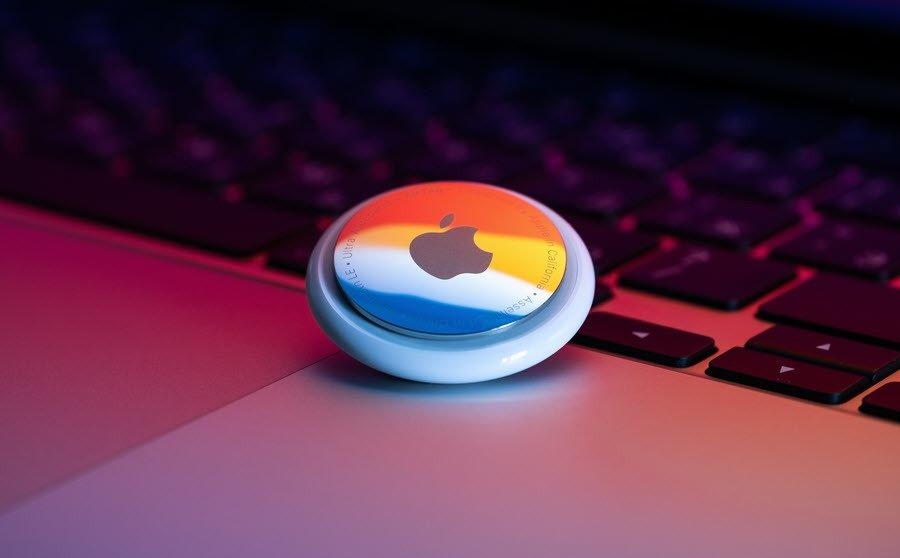Tile, the maker of Bluetooth-powered lost item finder beacons and, more recently, a staunch Apple critic, announced today it has raised $40 million in non-dilutive debt financing from Capital IP. The funding will be invested in Tile’s finding technologies, ahead of the company’s plan to unveil a new slate of products and features that the company believes will help it better compete with Apple’s AirTags and further expand its market.
The company has been a longtime leader in the lost item finder space, offering consumers small devices they can attach to items — like handbags, luggage, bikes, wallets, keys, and more — which can then be tracked using the Tile smartphone app for iOS or Android. When items go missing, the Tile app leverages Bluetooth to find the items and make them play a sound. If the items are further afield, Tile taps into its broader finding network consisting of everyone who has the app installed on their phone and other access points. Tile can automatically and anonymously communicate the lost item’s location back to its owner through its Tile app through this network.

Tile has also formed partnerships focused on integrating its finding network into over 40 different third-party devices, including those across audio, travel, wearables, and PC categories. Notable brand partners include HP, Dell, Fitbit, Skullcandy, Away, Xfinity, Plantronics, Sennheiser, Bose, Intel, and others. The title says it’s seen 200% year-over-year growth on activations of these devices with its service embedded. To date, Tile has sold more than 40 million devices and has over 425,000 paying customers — a metric it’s revealing for the first time. It doesn’t disclose its total number of users, both free and paid combined, however. During the first half of 2021, Tile says revenues increased by over 50% but didn’t provide complex numbers. While Tile admits that the COVID-19 pandemic impacted international expansions, as some markets have been slower to rebound, it has still seen strong performance outside the U.S. and considers that a continued focus. The pandemic, however, hasn’t been Tile’s only speed bump.
When Apple announced its plans to compete with the launch of AirTags, Tile went on record to call it unfair competition. Unlike Tile devices, Apple’s products could tap into the iPhone’s U1 chip to allow for more accurate findings through the use of ultra-wideband technologies available on newer iPhone models. Tile, meanwhile, has plans for its ultra-wideband-powered device but hadn’t been provided the same access. In other words, Apple gave its lost item finder early, exclusive access to a feature that would allow it to differentiate itself from the competition. (Apple has since announced it’s making ultra-wideband APIs available to third-party developers, but this access wasn’t open from day one of AirTag’s arrival.)
Tile has been vocal on Apple’s anti-competitive behavior, having testified in multiple congressional hearings alongside other Apple critics, like Spotify and Match. As a result of increased regulatory pressure, Apple later opened up its Find My network to third-party devices to alleviate Tile, and the other rivals its AirTags would disadvantage.
But Tile doesn’t want to route its customers to Apple’s first-party app — it intends to use its app to compete based on its proprietary features and services. Among other things, this includes Tile’s subscriptions. A base plan is $29.99 per year, offering features like free battery replacement, intelligent alerts, and location history. A $99.99 per year plan also adds insurance of sorts — it pays up to $1,000 per year for items it can’t find. (AirTag doesn’t do that.)
Despite its many differentiators, Tile faces steep competition from the ultra-wideband-capable AirTags, which have the advantage of tapping into Apple’s finding network of potentially hundreds of millions of iPhone owners. However, Tile CEO CJ Prober — who joined the company in 2018 — claims AirTag hasn’t impacted the company’s revenue or device sales. “But that doesn’t take away from the fact that they’re making things harder for us,” he says of Apple. “We’re a growing business. We’re winning the hearts and minds of consumers… and they’re competing unfairly.” “When you own the platform, you shouldn’t be able to identify a category that you want to enter, disadvantage the incumbents in that category, and then advantage yourself — as they did in our case,” he adds.
